At the height of the pandemic, the unemployment rate for Latinas exceeded 20%, the highest among all workers. While the nation’s overall job numbers have improved, the unemployment rate for Latinas in the first quarter of 2021 was still 3% higher than it was during the same period in 2020.
Latinas in the U.S. were among the hardest hit by the COVID-19 pandemic. An AAUW research project documents the health and economic repercussions — and outlines policy priorities to aid in the recovery.
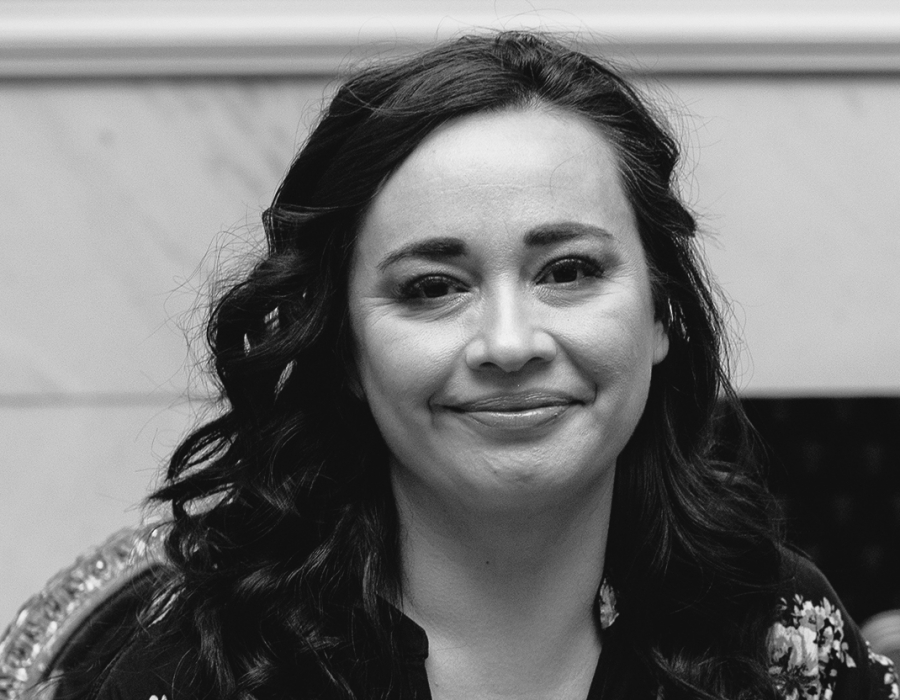
The Status of Latinas
The success of Latinas and that of the United States are inextricably linked. With a population hovering near 30 million, Latinas are both a vital base of support for the U.S. economy and critically influential as voters. But even though their contributions boost the national economy, many see little return for their work. More than half of Latinas are second-, third- and fourth- generation Americans, yet deeply rooted structural inequities in education, health and the economy limit their ability to build generational wealth. Latinos as a whole contributed $2.6 trillion to the U.S. economy in 2019, yet Latinas still earn 55 cents for every dollar earned by white, non-Hispanic men.
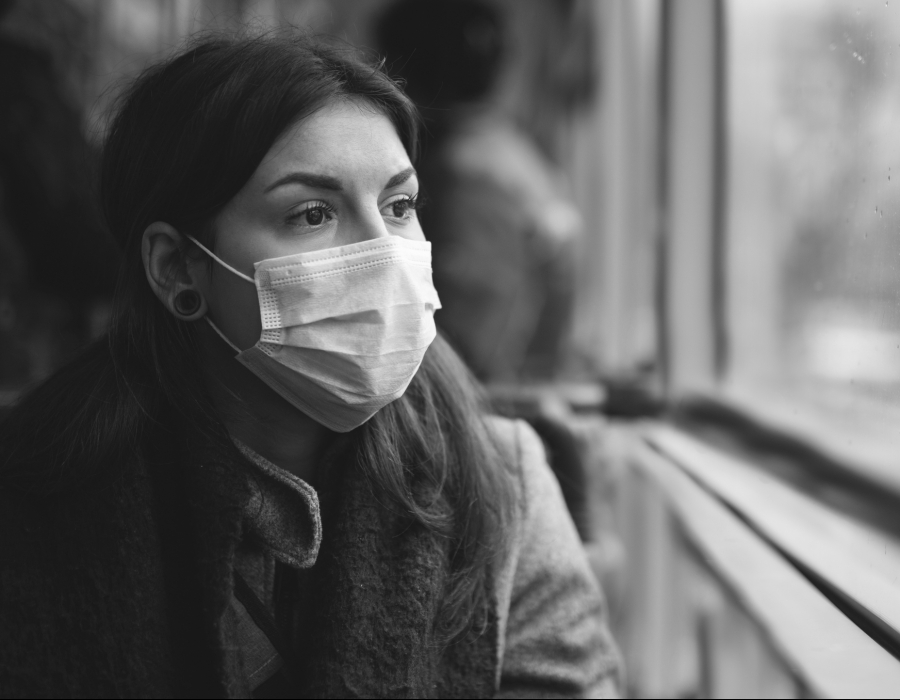
Pandemic Inequity: Latinas and the COVID-19 Experience
While COVID-19 is capable of infecting anyone, the level of risk is far from equal. Data show that Black and Latino communities, already suffering from deep-rooted economic and health inequalities, have borne the brunt of the pandemic. Latinas, in particular, have suffered some of the most egregious economic and health disparities over the past year. Latinas were already saddled with significant disadvantages pre-pandemic; they had lower wages, higher levels of poverty and were the least likely to have access to health care compared to other demographic groups. COVID-19 compounded these inequities, and the outcomes for Latinas have been devastating.
Low Wage, High Risk
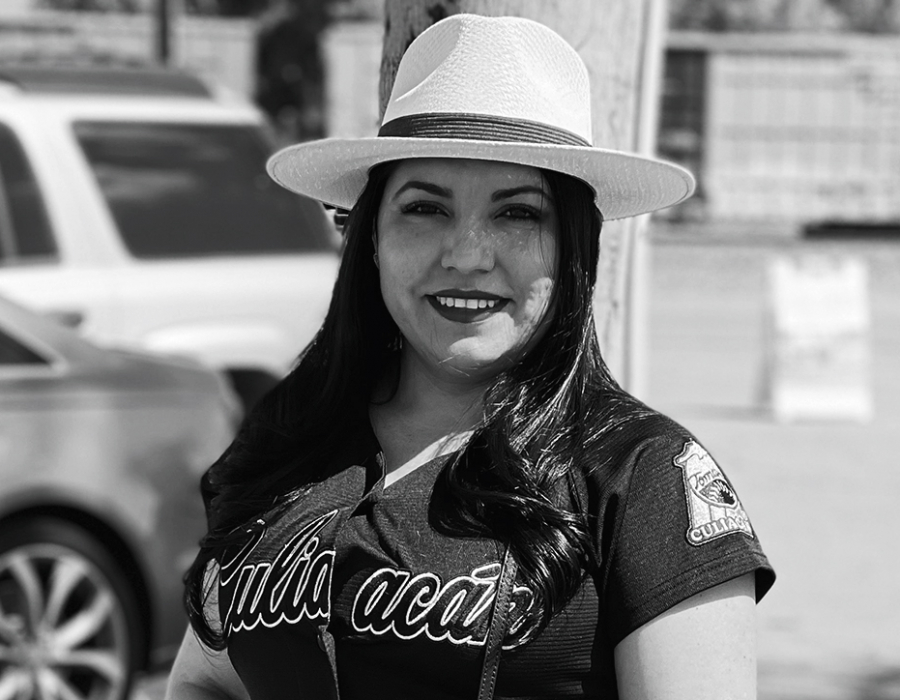
Stories of Struggles — and Hope
Lifting up Latina voices is vital to ensuring a full and fair recovery from the health and economic crises of 2020. The women we interviewed described their pandemic experiences and its impact on the economic stability and physical and mental health of them and their families.
I have always struggled, but Covid has made it much worse.
Cristalray D., Colorado
I was born and raised here in Alamosa, in the San Luis Valley of Colorado. I live in the same house I grew up in, my grandmother’s house. My mom passed away when I was 6, from cancer. My stepdad moved out and took my sister with him. My own dad has been in and out of my life. I share this because these struggles have made me who I am. I am very independent and accustomed to fighting for myself.
I’ve been working since I was in sixth grade. My first job, in the summer, was harvesting peas. I think I probably ate more peas than I harvested that season. After high school, I went to a community college for a little while but didn’t complete it. But my kids, I have two daughters who have graduated: They are medical assistants and work in the nursing field. And I have two other girls, 19 and 13. And I’m a grandma.
My husband and I run a small restaurant that had been his dad’s business before we took it over about ten years ago. It’s a mom-and-pop business; we’re open from 7 a.m. to 1 p.m. Our biggest item is our “backdoor” burrito; it’s handheld, we sell it all day long.
The pandemic has been really tough: They shut down our dining room for about three months last March. We were able to reopen in June at 50 percent, but then they shut us down again in December. Overall, our sales are down by about 60 percent. But the hardest part is that the prices of our food and our supplies, like gloves that we need for Covid, actually doubled. So we’re struggling.
My husband owns a small construction company and, fortunately, has been able to float us. We’ve tried to keep our staff of seven employed, but we had to cut people’s hours. I had let go of my cook, our highest paid position, and now I’m doing that work myself.
On top my job, I have my 13-year-old daughter who is doing hybrid schooling — she goes in Monday and Wednesdays, and is at home on Tuesdays, Thursdays and Fridays. It’s tough. We don’t really have great internet in this area: I just read a story about a neighboring town where the internet is so bad that kids have to go to graveyard to get Wifi so they can do their homework.
At the height of the pandemic, my grandkids, 8 and 4, were also living with us. Their mothers were doing COVID testing, so we couldn’t risk having the kids infected; one of them has asthma. So I was homeschooling three kids. But as time went on, we decided my grandkids needed to be home to be with their moms. So we’re taking all the precautions — and putting our trust in God.
It’s been stressful, whew… health-wise, it was just too much. My ulcer got inflamed. But I’m okay now, and trying to stay positive. We don’t have health insurance. We used to qualify for Medicaid, but under the Trump Administration, our business expenses were counted as income and we lost our coverage. Now we pay out of pocket for medical care. Knock on wood, as long as none of us get sick, it’s cheaper not to have health of insurance. But if something major happens, it’s really going to bite us in the butt. It’s crazy to think, we own two businesses — we should be just rolling in the dough. But that’s not how it works; we struggle like every other household.
It’s never been easy for us, but the pandemic has certainly made things worse and has made our struggles harder. You know, when Covid first happened, I felt like my entire family should been staying at home, staying safe. Yet all of us were working. I really felt like we were not valued. All the white people got to stay home and work from home; but we didn’t have that luxury or that choice. We had to go to work every single day and put our lives at risk to keep this economy running.
You can say “essential workers” all you want, but I felt like we were disposable. Why? Because we’re Hispanic. We’re the health-care workers, the grocery store clerks, the farm workers. When everyone else was staying home, we were out there making sure that everyone got their food, everyone had their health care. You know, we are the foundation of this country, we are what keeps it running. I just wish that more people were aware of that, and listened to our stories and understood what we need.
It was very isolating, living in the same house but not being able to engage with my family.
Jessica Z., Illinois
I’ve been working in the HIV field for about six years. A lot of my work is educating the community, doing rapid testing, informing people of their status, and promoting sexual health. I’m very passionate about my work; I like empowering people with correct information because we get so much unreliable information from outside sources. The population that I work with is predominantly African American and Latino, usually between ages of 30 to 50, mostly males and same-sex couples.
Working throughout the pandemic has been anxiety inducing. My job is not one I can do remotely: Part of my work involves doing medical rounds at the hospital with critically patients in the HIV unit, helping them transition from in-patient to out-patient care. Another aspect of the my work is responding to an alert system that tells us when a patient checks into a medical appointment or into the emergency department. When I receive the alert, and if it is close to my office, I physically reach out to them and once again reconnect them to the care they need.
This was a very nerve-wracking time because, not only was I working with a very high-risk population, but I also live with high-risk people. My mother is diabetic, my stepfather has pulmonary problems and my little brother has asthma. At the time my grandmother was living with us too; she has diabetes and high blood pressure.
Coming home from work was incredibly nerve wracking because how do I not know I’m not carrying COVID with me? And because I have very good immune system and rarely get sick, I was always in fear that I would come home carrying COVID and that as a result, my family members could get it and develop chronic problems.
When I came home, the first thing I would do is strip off my clothes and take a shower. Then I’d have dinner in my room and stay in my room for the remainder of the evening. I didn’t see my fiancé for months, because I didn’t want to hop from house to house and risk exposure. It was very isolating, living in the same house but not being able to engage with my family. Knowing that I couldn’t hug my little brother – who always wanted to hug me – was so hard. I already suffered from anxiety – the pandemic just added it to it and it took a toll on my mental health.
I’m now vaccinated so I don’t feel the need to completely isolate myself, and I don’t have the same anxiety that I felt early on. But as an essential worker, I feel that the people who have the opportunity to work from home full time take that privilege for granted. People that work in the healthcare fields like me don’t have that flexibility. And it’s frustrating to see friends on social media who can work from home traveling all over the place.
For me, the hardest part of this has been trying to keep my family and myself safe. Just the thought of putting my family member at risk and wondering, “Can they die as a result of me? Can I give them COVID?” But when you are an essential worker you have to be okay working under those conditions. And though my parents and my family are supportive of my career, there were times where they were asking, “Is this worth it?” and asking me to quit my job because it was just too risky.
I stood my ground because I’m very passionate about public health and told them, “I will do everything in my power to make sure that I am taking the precautions to not only care for myself, but also you.” All of which meant I was isolating myself and not interacting with them even though we lived in the same house.
It’s very frustrating to see people who haven’t lived through this just continue to live their lives as if there isn’t a pandemic. I think if they walked in the shoes of an essential worker, their perspectives would change and they would want to, at the very least, wear their masks and social distance. If people understood the gravity of the situation and it hit them in a personal way, I’m sure that their actions would be different.
Right now, with tuition alone, I think I owe about $82,000.
Julia J., Florida
So many things have been up in the air for the past year because of COVID. I’m in my last semester of Occupational Therapy school, and I have field work starting in May in Chicago, which is very exciting. I’ve only ever lived in Florida. I grew up in Miami Beach and then moved to Miami. I then went to the University of Florida for undergrad. So I wanted to try something a little bit different by going to another state.
This year has been hard. My mom lost her job in April 2020 because of COVID. She was a word processor for a law firm and had worked there for 37 years. I don’t remember if they said specifically if she was let go because they were downsizing or whatever, but they were definitely letting people go because of COVID. Her severance package was okay because she worked there for so long, so we were in a good place for about three months. But I needed to figure out how to help support us. I hadn’t been working when I was in grad school; my mom always told me that if I don’t have to work, then don’t work while in school. But once she got laid off, I knew I needed to get a job.
Now I’m trying to work as much as possible. I think on average I’m working about 15 hours a week. My mom has a couple of part-time jobs doing the same kind of paralegal-like work but with less pay. What has really helped was putting her mortgage in forbearance. She bought a new house without knowing COVID was going to happen; she thought it would work out because she had a job.
I was really lucky going to the University of Florida. It was a state school and I had Florida Prepaid and Bright Futures, which basically meant my undergrad was covered. But for grad school I’m paying for it all in loans. Now I’m realizing I’m going to have to take out more loans to pay for my field work in Chicago.
Right now, with tuition alone, I think I owe about $82,000. But because this is unsubsidized, it’s been accruing interest. The interest stopped accruing because of COVID, but in just the short amount of time since I’ve had the loan, it’s already accrued more than $1,000 in interest. And I still have two semesters left.
I also took out another loan for about $4,000 that luckily is interest-free. But now that I’m realizing I’m probably going to have to take out another $5,000 just for rent and living expenses in Chicago. So I’ll probably owe about $90,000 after I’m done with grad school. I am planning on moving to Virginia with my boyfriend — starting salaries there will probably be about $60,000, maybe $70,000.
But even with this starting salary and an aggressive loan schedule, it’s still going to take a long time and probably more than half of my salary to pay it off! I’ve been using the Federal Aid Loan simulator to understand what repayment is going to cost. If I do the more aggressive repayment plan, which comes to $1,000 a month, I think it would take at least 10 to 11 years to pay it off.
My mom trained to be a social worker, but because it didn’t pay very well, she worked in the legal field. But because of her experiences, my mom wanted to make sure that I was doing something that I was happy doing and I’ve been lucky enough to find something that makes me happy.
I know we’re lucky in a lot of ways, but I’m really worried about having to take out more loans just to finish my program and get my career started. I’m hopeful jobs in OT will be available, but will they? People have suggested that I try and find scholarships. It’s not that easy to find those, but it’s very easy to take out loans. Cancelling student loans would be helpful, or maybe we just find a way to fund people who are of minority groups so that they can get that higher education so that they can get those better jobs that are higher paying.
So many people don’t have a voice in the system. We must act so they’re not left behind.
Maria L., New York
I was born in Cali, Colombia, and immigrated to the U.S. with my parents when I was eight. I was raised in Queens and remained undocumented until mid-way through college. After I got my legal standing, I applied to medical school. I’ve been an attending physician in pediatric emergency medicine for five years.
DACA didn’t exist when I was a student. I remember being worried in high school that I wouldn’t be able to attend college. It turned out I didn’t need a social security number to apply. However, the few relevant scholarships I found required a green card, so I had to pay for my education on my own. I selected Queens College because it was affordable, and I worked my way through school with jobs at a bakery and a nursing home.
I live in Corona, Queens, which was the “epicenter of the epicenter” of the early pandemic. COVID had a big impact on both my job and my family. At work, we initially experienced a decrease in the number of patients we were seeing because people were afraid to go to the pediatric emergency room. Because children weren’t affected by COVID as badly as adults, we tried to mitigate the local surge by increasing the age limit of our patients to 35.
Both my parents got COVID. It was really scary. My father is immuno-suppressed, and their plan was to leave New York City to stay with my brother upstate, where it was safer. But just as they were about to depart, my mom developed symptoms. My dad’s home health aide brought the disease into their home after contracting it from her husband.
While my dad recovered quickly, my mom was sick for more than a month and still has fatigue and a burning sensation in her chest. The home health aide’s husband — a 40-year-old man with no underlying conditions — got it worse than everyone. He spent two months on a respirator and a long stint in rehab. I’ll never forget the panicked phone call I got from the aide. She couldn’t speak to her husband after he was hospitalized or get any updates on his condition. As a doctor, I was able to intervene and get information for her; I can’t imagine what it must have been like for those without advocates.
My family was lucky because we could afford to have groceries delivered. There was almost a two-hour wait to shop at the local store. The affluent neighborhoods didn’t seem to have that issue. And that disparity was the tip of the iceberg.
In the majority-Hispanic area where I live, there are many small, multi-generational households where it’s virtually impossible to quarantine. People work in grocery stores or as delivery people and don’t have the luxury of working from home. They rely on public transportation — which puts them at further risk. I know people whose employers told them, “If you don’t come to work, you’re fired.”
The patients I see have limited English proficiency and digital literacy. We need policies and community outreach to ensure equity. Telemedicine is transforming health care, but it’s not accessible to all. So many people don’t have a voice in the system. We must act so they’re not left behind.

AAUW’s Latina Alumnae Spotlight
AAUW is proud to celebrate LatinX and Hispanic Americans and their invaluable contributions, while also raising awareness about the inequities many still face. In honor of Hispanic Heritage Month we are featuring a few of our awardees of Hispanic origin who are working to bring awareness and promote gender equity for women and girls within the LatinX community.
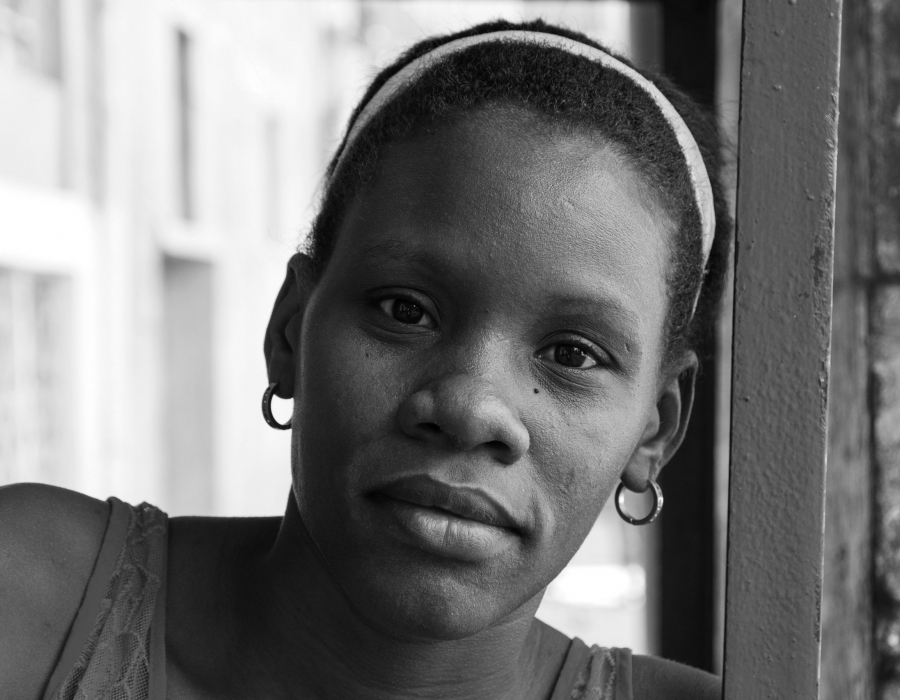
The Necessary Next Steps
Despite their numbers, Latinas are rarely at the center of public discourse or policy reform considerations. Yet as we strive to recover from the the pandemic, it is essential to address the specific needs of those communities that were hardest hit. This includes guaranteeing access to affordable health care, extending economic benefits to all Latinas, regardless of immigration status and strengthening job protections for essential workers in frontline occupations.
Related
Latinas and the Pay Gap
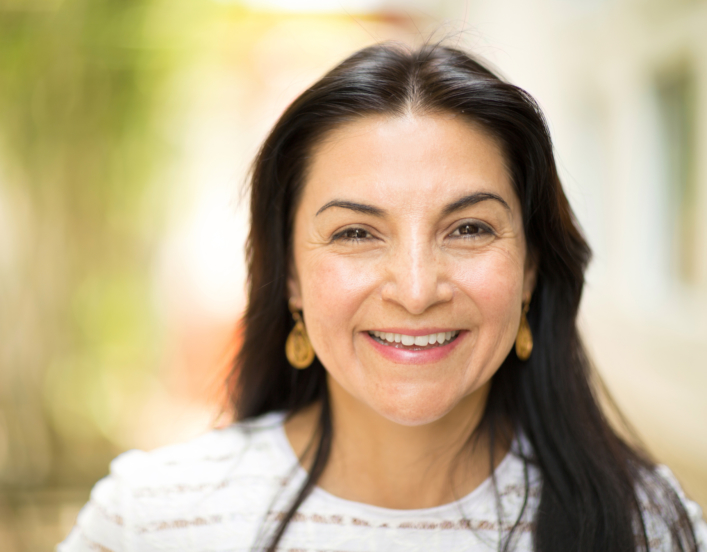
AAUW’s Latina Alumnae Spotlight

